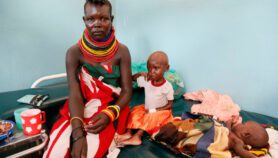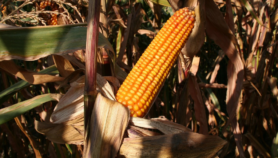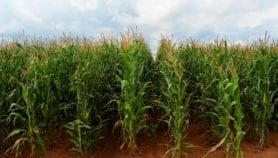05/03/20
Africa’s young agri-entrepreneurs nurturing the future
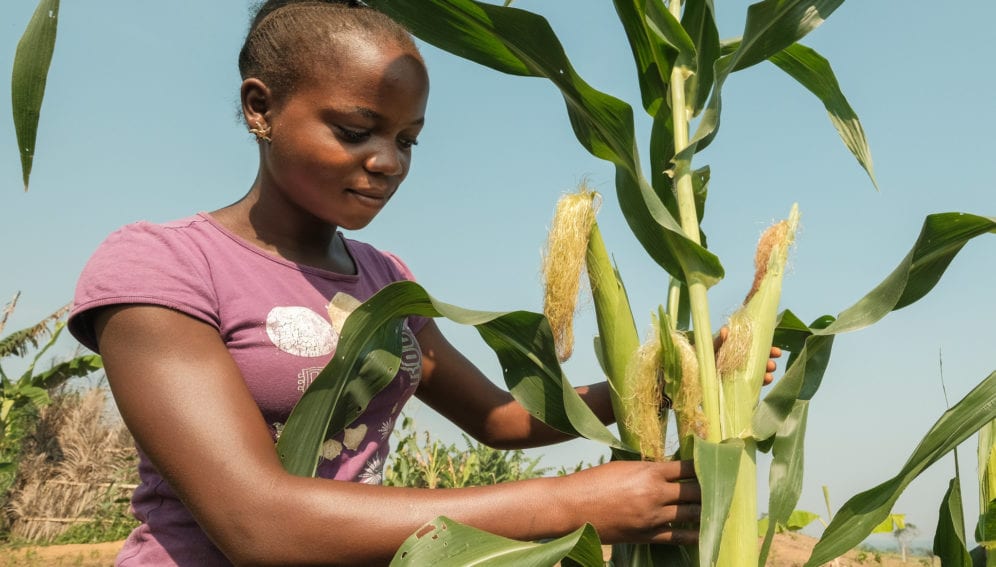
By: Laura Owings
Send to a friend
The details you provide on this page will not be used to send unsolicited email, and will not be sold to a 3rd party. See privacy policy.
Standing among rows of blooming purple cabbage, Rodgers Kirwa is on his phone – sending a tweet. It is the first of many in the #AgribusinessTalk254 hashtag series he uses to inspire young people about the potential of agri-business.
“The goal is to communicate with and educate [the] youth to engage in agri-business and create employment,” says the 28-year-old Kenyan.
Known online as Mr Agriculture, Kirwa has a reputation among his followers as a passionate advocate for agriculture. Through iAgribiz Africa, he’s working to share that as a mentor for young people looking to follow in his footsteps.
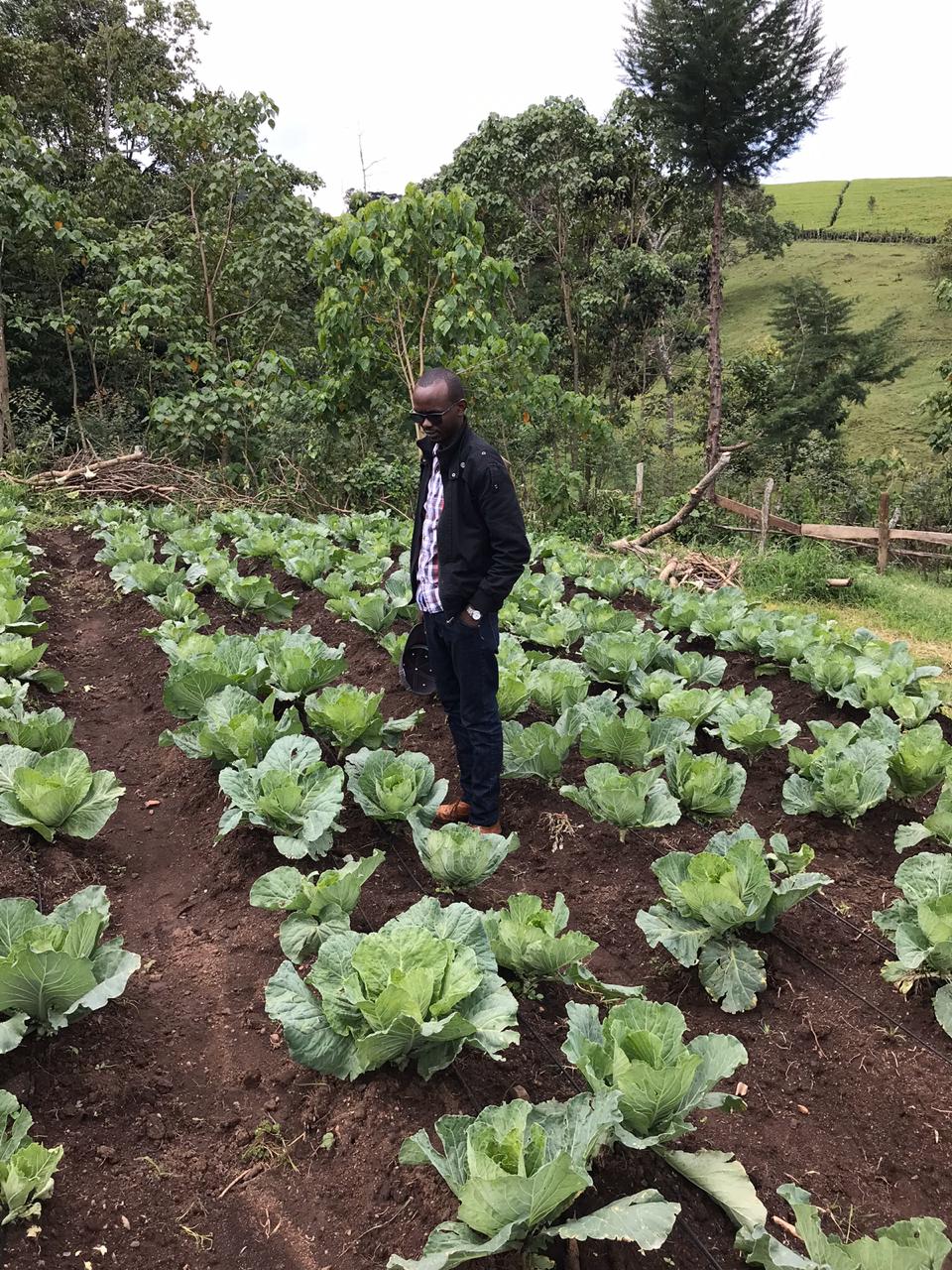
Rodgers Kirwa is known as Mr Agriculture on Twitter, where he connects with young people on issues in agriculture. Credit Rogers Kirwa
Kirwa is not the only one. Young agri-entrepreneurs across Africa are working to invigorate a sector many see as having great potential to shape the future of the continent.
Working to break down stereotypes such as agriculture being a domain for the less educated, overcome challenges such as accessing finance and land, and focussing on their collective futures, young African farmers are carving their own way as they wait for governments and policies to follow.
Setting an example
Growing up in Western Kenya’s Nandi Hills, Kirwa was raised with farming in his blood. His mother supported the family as a small-scale farmer in a community where agriculture was the mainstay.
“I grew up with a passion for farming and wanting to be a farmer. That’s why I chose to get involved in agri-business,” he tells SciDev.Net.
Now, Kirwa supports his community with a model farm and training centre called iAgriBiz Africa. Founded in 2018, it includes 40 smallholders and runs local training and mentorship programmes.
“Our main goal is to teach modern ways of farming like drip irrigation, greenhouse farming and ways to support productivity throughout the year,” Kirwa says.
This includes educating farmers on everything from seed selection to fertilisation techniques and how to understand the market.
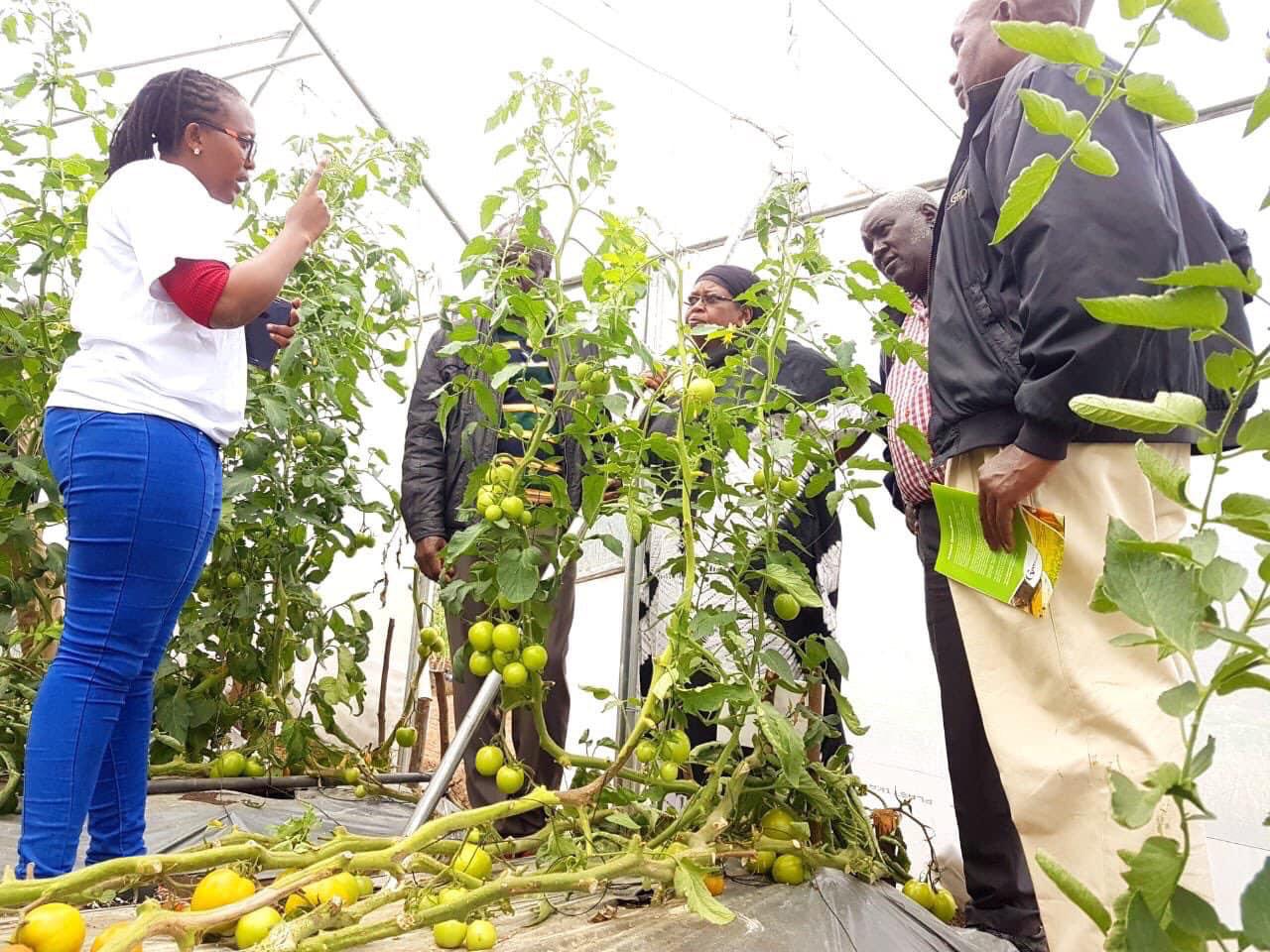


iAgribiz Africa hosts trainings that bring together local farmers to build agricultural and business management skills. Credit Rogers Kirwa
“If you want to grow tomatoes, we say go to the market and understand what type is being sold, when they are sold and what their prices are,” he says.
“If you want to get into farming, you have to do the research first, just as you would do with any other enterprise.”
Kirwa also uses social media, and his #AgribusinessTalk254 chats to reach young farmers. “Most young people are on social media, and it’s a free platform where I can reach out and tell them more about agriculture.”
This is important, he says, to break stereotypes about the industry. “Young people don’t choose agri-business because they see it as failure or for those who didn’t go to school,” he says.
Before launching iAgribizAfrica, Kirwa studied agri-business management at Kenya's Egerton University.
“As someone who has gone to university, I want to show them that I’ve been to school and gone back to the farm and been successful. They can do that too if they’re passionate,” he says.
Overcoming negativity
Positive role models like Kirwa are important, says Luke Meterlekamp. A postdoctoral fellow at Rhodes University in South Africa, his is among the few works to examine youth attitudes, expectations and experiences in agriculture in Sub-Saharan Africa.
“There is a willingness and a hunger among young people to be involved in the agricultural system and a receptiveness to doing things differently,” says Meterlekamp.
Despite this, and high levels of unemployment, he says young people are turning their backs on the industry.
“There’s negativity driven in part because they’re not seeing examples of the opportunities in the sector, and partly because of the drudgery and hard work associated with traditional subsistence agriculture,” he explains.
“If you want to get into farming, you have to do the research first, just as you would do with any other enterprise.”
Rodgers Kirwa, iAgribiz Africa
While his work focused on South Africa, where unemployment rates are as high as 50 per cent, it has value elsewhere in Africa where agriculture is seen as one of the pathways to addressing youth unemployment.
Indeed, the farming sector accounts for up to 60 per cent of African jobs, according to a 2019 report on Africa's youth from the Mo Ibrahim Foundation. .
“Agriculture is expected to remain the main pool of employment opportunities for Sub-Saharan African youth in the foreseeable future,” the report says.
According to Meterlekamp, positive examples can help make that a reality. “By encouraging positive role models, we can help young people break the cycle,” he says.
However, he says it is also important to couch these stories within the larger narratives about enterprise.
“When we think about farming, we tend to think about the farmer and not the enterprise,” he says. Instead, stories should demonstrate the range of skills needed to run a small farming business including everything from working the land, to marketing and financial planning.
Business of farming
“Farming is a business, and that means more than just managing the product. You also have to understand the value chain [activities performed in order to deliver a valuable product to consumers] and the market,” says Tawanda Runganga.
Runganga is a 27-year-old mushroom farmer in Zimbabwe who learned the value of the enterprise system the hard way.
In 2017, he launched RunIn, an oyster mushroom business based in the country’s capital Harare. Drawn to the vegetable’s appeal as a versatile, nutritious and easy to cultivate crop, he threw himself head-first into production.
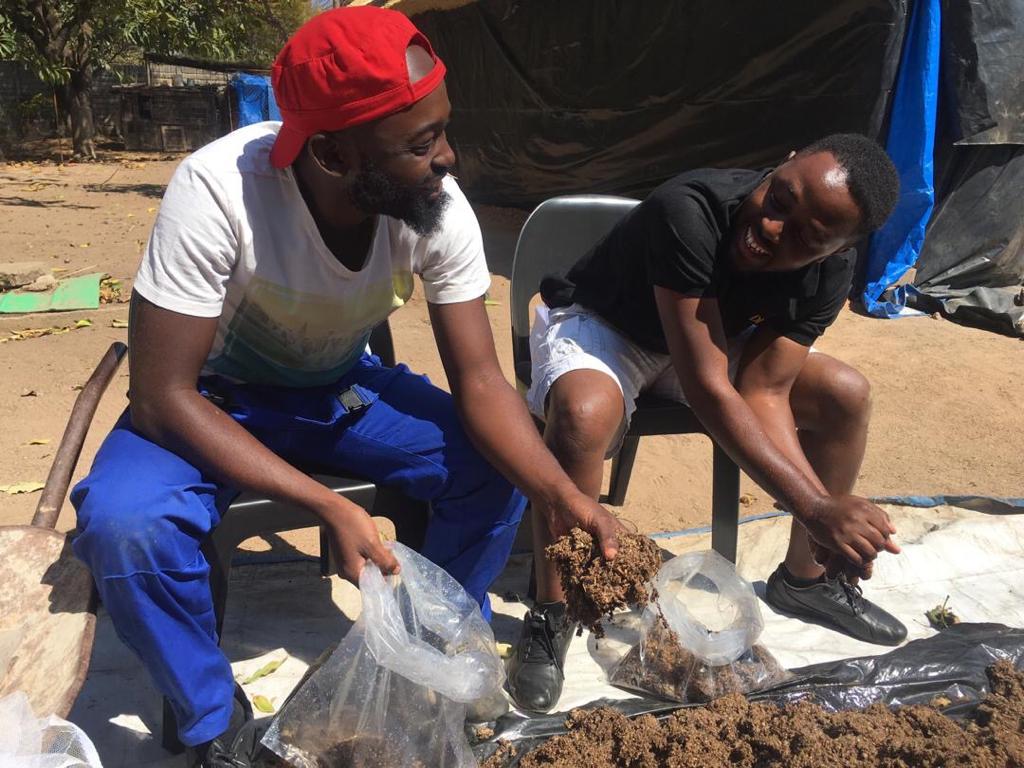


Runganga and his team: RunIn employs three full-time employees. Credit: Tawanda Ruganga
The result was a booming yield in just six-weeks – with no one interested in buying.
“My focus was on producing as much as I could,” he says. “The mistake I made was never looking at my target market – who wants mushrooms?”
Rungagna started growing that market, tapping into his community to build customers. “I used Facebook, WhatsApp, flyers, even cooking them as tasters in the local markets,” he says.
Now RunIn is a full-time business employing three people, selling locally-grown mushrooms at markets, supermarkets, restaurants and in-home deliveries.
RunIn also hosts business training and consultations, where local farmers are coached on how to manage their farms as agri-businesses. This includes lessons on planting and harvesting, as well as administrative skills-building in budgeting and bookkeeping.
“Young people need to be trained on how to see farming as a business,” says Runganga. “That means covering issues of access to finance and markets, and the aspects of business that go beyond just managing a unit of livestock or the horticultural process.”
Runganga has even created an educational module called A Guide to An Agripreneurship Future. It offers a snapshot of the modern agricultural sector and the opportunities that exist for young people.
Credit: Tawanda Ruganga
The guide, which he currently teaches in five community high schools, is part of RunIn’s bigger mission to promote farming as a viable career path.
“When people say agriculture is the basis of survival for African youth, I take that seriously. If our future is the land, we must understand how to manage it and manage it well,” he says.
Access to finance
Knowledge networks like those driven by Kirwa and Runganga could help improve access to finance for young agri-entrepreneurs.
“When access to finance is supported with technical skills and linking to markets, business networks, and continuous mentorship, entrepreneurs are often successful in their projects,” says Mastewal Yami, a policy scientist and consultant with the International Institute of Tropical Agriculture.
That success has a knock-on effect, encouraging governments and donor bodies to continue investing in agri-entrepreneurs.
“When entrepreneurs are successful in properly using revolving funds for their businesses, funds come back into the pool and other youth can benefit. But if we just give out funds without ensuring entrepreneurs are equipped with the necessary skills and long-term mentorship, the pool dries up,” she says.
Yami admits that the pool of finance itself is small, but more worrying is the lack of information about what does exist.
“Youth in agriculture lack information on the available financial resources and processes,” she tells SciDev.Net. “There is limited information on how to obtain funding, how it works, who is eligible and its duration.”
Credit: Tawanda Ruganga
Whether due to a lack of promotion or lack of transparency, Yami says this is part of a greater problem faced by African governments and policymakers aiming to increase youth presence in agriculture.
In a research carried out by Yami and others, it was found that most policies developed to address youth unemployment issues in the agricultural sector lack evidence to back them up.
“This has led to a ‘one size fits all’ approach focusing on interventions governments and development partners assume youth might need,” Yami says.
A lack of youth participation in the policy process was found. “We often talk about the problems youth face in agriculture without bringing them to the table and learning their views,” she says.
“We need to learn about their capabilities, their interests and aspirations and make policies and interventions inclusive,” she says.
According to Yami, more needs to be done at a policy level to make the agricultural sector productive and profitable to both investors and young people.
“When that’s achieved, we’ll see more young people taking it [agriculture] up as careers and financers seeing it as attractive,” she says.
New models for land use
Access to finance goes hand in hand with another basic challenge faced by young people in agriculture – access to land.
According to Charles Dhewa, CEO of Zimbabwean-based agriculture consultancy Knowledge Transfer Africa, new models for land use could be a solution.
“We need new models that go beyond land ownership and suit young people who are mobile and able to connect with and grow commodities where there is a market,” he says.
He suggests agri-entrepreneurs start small by renting land or joining with cooperatives. It’s a method that some farmers already advocate, including Kirwa.
“Many young people tell me that they’re passionate about farming but they don’t have land or capital to start,” he says. “We advise that you don’t have to own land to get started, you can lease land or use a friend or family’s land.”
“Unemployment, food security and climate change are forcing us to think more creatively about agriculture and policy but the pace is slow.”
Charles Dhewa, Knowledge Transfer Africa
Kirwa’s message is to start small and see it as a long-term plan. “Farming has to be long-term and sustainable. You must invest what you earn back into business and grow over time,” he says.
New models are also needed for how land is used, says Dhewa, specifically which crops are planted. According to him, that means turning to indigenous fruits, vegetables and livestock.
“There have been a few commercial crops, such as maize and wheat, that have been supported by governments in Africa at the expense of diverse value chains, some of which end at local levels where we can create jobs and promote rural industrialisation,” he says.
With Africa’s annual food imports set to total US$110 billion in 2025, according to the African Development Bank, there may be reason to consider increasing local food production by supporting development.
In fact, some African countries including Nigeria have made moves to reduce the dependence on foreign-grown products, providing a boost to young agri-entrepreneurs.
Locally grown
Balogun Raheem grew up in Lagos, as far from farming as a Nigerian could get. During his time with the national service, he was stationed within a rice farming community in Ijoko, a town in Western Nigeria, sparking an interest and passion in farming.
“I grew up with the idea that the rice we ate was imported. I never imagined it could be produced here or that I could be growing it,” says the 27-year-old.
With guidance from his friends and the money he had earned from the national service, he began farming rice. “I was able to rent the land for 10,000 Nigerian Naira (about US$27) and had friends to guide me,” he explains. “They taught me how and when to plant, to plough and harvest.”
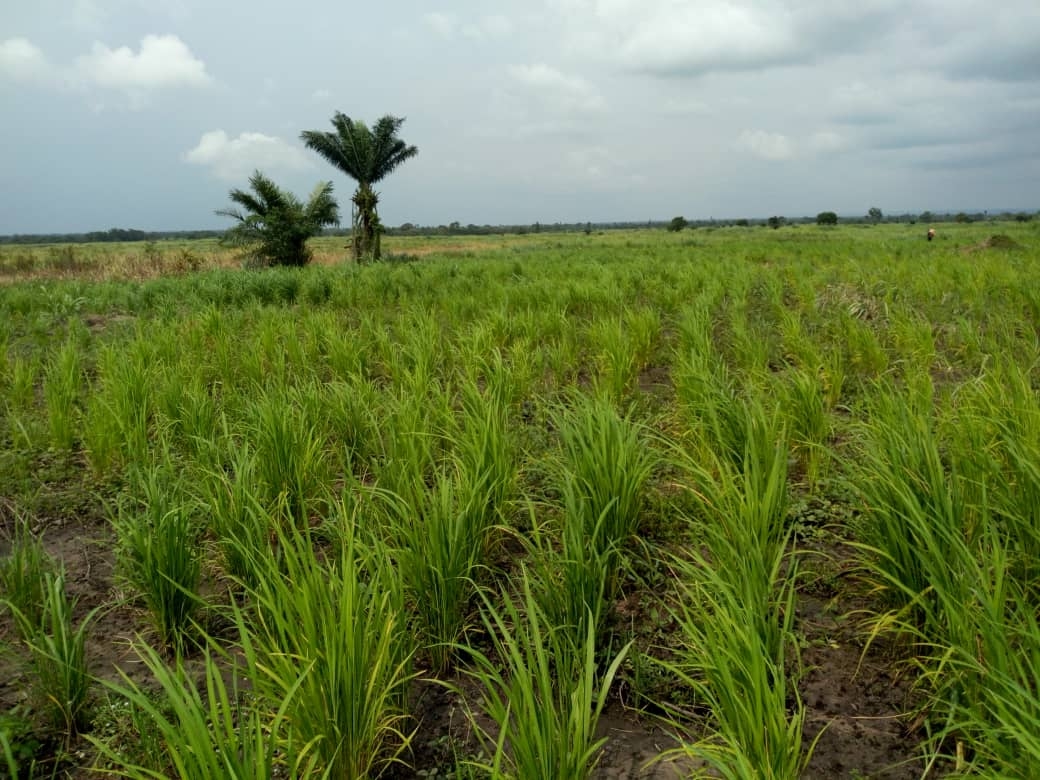


Rice fields grown and cultivated by Raheem and the Salsabille Agro team. Credit: Balogun Raheem
His first yield was profitable, allowing him to launch Salsabille Agro as a full-time rice farming business. But marketing his product was not easy.
“It was very hard to convince customers to buy Nigerian rice,” he tells SciDev.Net. That was until August 2019 when President Muhammadu Buhari blocked food importers' requests for foreign currency.
“That single action was the turning point for our company,” says Raheem. Where a year earlier he was begging for customers, the ban had customers begging Salsabille Agro for rice.
“We increased sales and by the end of 2019 were able to establish our own mill. We have a small capacity but now process our own rice,” he says. “Three full-time employees have also been brought on, and they’ve begun farming wheat and sesame.”
But there are questions about whether Nigeria's farmers can keep up with demand to supply the country's 200 million people. For Raheem, there is a need for capital to grow and expand to meet his customers’ needs.
“I’m applying for loans and grants but I can’t rely on that,” he tells SciDev.Net. “Without finance and proper policies from the government, it’s very hard to make it in agri-business.”
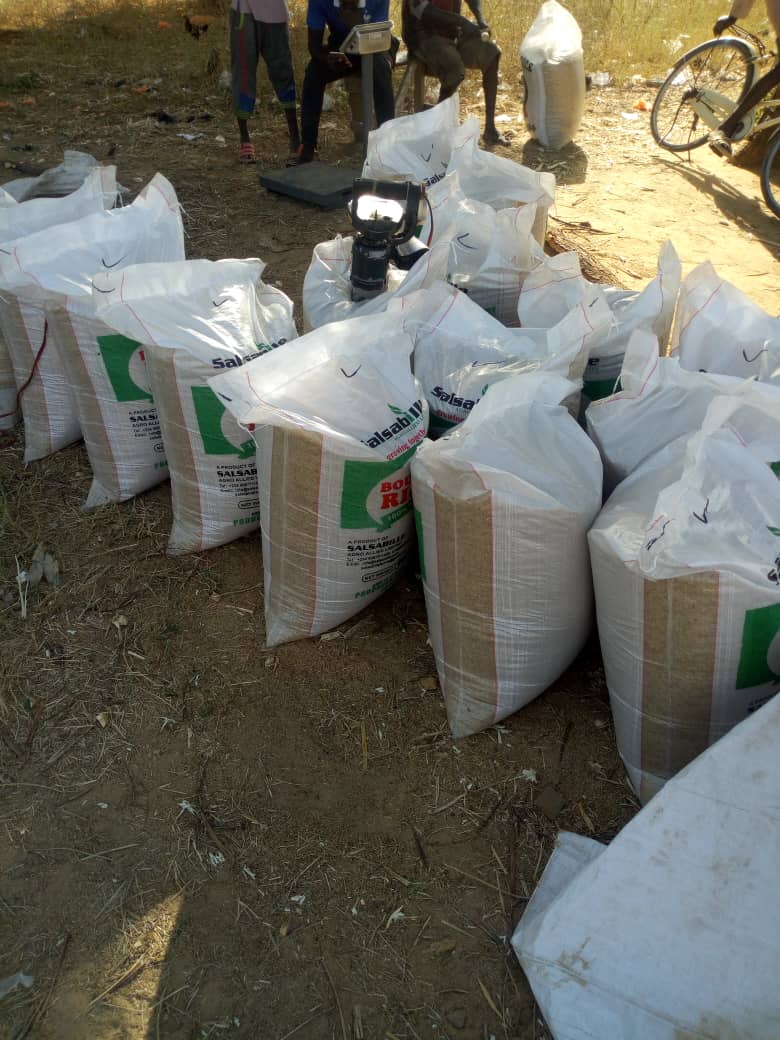


Rice packaged and ready for market by Raheem's Salsabille Agro Credit: Balogun Raheem
Still, he says he will never discourage young people from getting into the industry. “It’s a form of fulfilment that can go beyond farming,” he says.
“I’m passionate about being able to do what I do in a country with a high rate of employment, where I’m able to be an employer.”
Making a difference
From zero hunger to climate action, poverty eradication and job creation, agriculture plays a role in almost all of the Sustainable Development Goals.
This is not lost on young people. In fact, Metelerkamp’s research found that young people in Africa see agriculture as a way of gaining employment and making a difference.
“When we asked young people what motivated their career decisions, a close second to the need to make an income was work that had a social value,” he says. “And they identified agriculture as a way to do that by providing food to families, communities and the idea of feeding the country.”
For some, like Rungunga, the closeness of issues such as food security gives urgency to their work. “I’ve felt poverty and seen poverty, those around me with one or even half a meal a day,” he says.
“If we empower people with the knowledge of how to produce for themselves and their families, that in itself will be a step into a food secure future,” he adds.
According to Dhewa, they are going to be the drivers of change.
“Unemployment, food security and climate change are forcing us to think more creatively about agriculture and policy, but the pace is slow,” he says. “There are so many gaps that are not yet being addressed properly that we’re now looking to young people as the ones cultivating change.”
This piece was produced by SciDev.Net’s Sub-Saharan Africa English desk.
References
[1] Luke Metelerkamp and others We’re ready, the system’s not – youth perspectives on agricultural careers in South Africa (Agrekon, 12 February 2019)
[2] Mo Ibrahim Foundation: Africa’s youth: Jobs or migration? (2019)
[3] Mastewal Yami and others African rural youth engagement in agribusiness: achievements, limitations and lessons ( Sustainability, 1 January 2019)
[4] Remarks delivered by Akinwumi A. Adesina, president of the African Development Bank at the Centre for Global Development, Washington DC, April 19, 2017 (African Development Bank, 20 April 2017).
[5] Mohamed Yahya, Africa’s defining challenge (UNDP, 2017)







